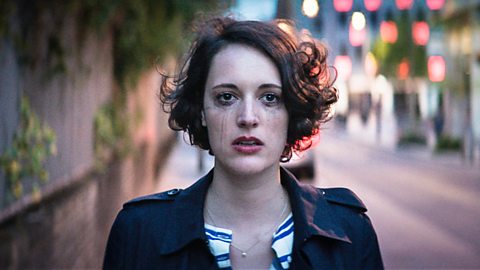The end of the year is about making lists, so here's everything I've watched, read and played in 2022. The below is ordered roughly by preference, and the links go to my jottings on here, Goodreads and Letterboxd.
Films
I was living away from my wife and kids for a few months this year and filled out the evenings by watching films. A lot of films. The Truffaut deep dive didn't bring up many pearls, but the top half of the list below are definite favourites. Only one trip to the cinema to see something new this year, and I'm happy it was Everything Everywhere All At Once.
Daniels - Everything Everywhere All At Once [link]
Paolo Sorrentino - The Great Beauty [link]
Jane Campion - In The Cut [link]
Wong Kar-wai - 2046 [link]
Steven Soderbergh - Out of Sight [link]
Yoshihiro Nakamura - Fish Story [link]
Mike Nichols - Primary Colours
Clive Barker - Hellraiser [link]
Sion Sono - Love Exposure
Gregor Jordan - Buffalo Soldiers
Norifumi Suzuki - Sex and Fury
Rian Johnson - Knives Out [link]
Susan Seidelman - Desperately Seeking Susan [link]
Jon Watts - Spider-Man: No Way Home [link]
Spike Jonze - Being John Malkovich [link]
Alfred Hitchcock - North by Northwest
Jane Campion - Holy Smoke [link]
Lana Wachowski - The Matrix Resurrections [link]
François Truffaut - The Soft Skin [link]
François Truffaut - Anne and Muriel (Two English Girls) [link]
François Truffaut - Shoot the Piano Player [link]
François Truffaut - Jules and Jim [link]
Christopher McQuarrie - Mission: Impossible - Fallout
Francis Lawrence - Constantine
Mark Cousins - The Story of Film: A New Generation [link]
Lorene Scafaria - Hustlers [link]
Nagisa Oshima - Violence at Noon [link]
Shohei Imamura - Warm Water Under A Red Bridge [link]
Masayuki Miyano - Lala Pipo: A Lot of People [link]
Books
I've started cross-posting my Goodreads reviews on here and it really looks like I mostly write about books now. Harold Bloom never fails to encourage you to up your reading game. After devouring his Bright Book of Life I tried a bit of Virginia Woolf (not for me) and Leo Tolstoy (a bit better), and am planning on finally tackling a Dostoevsky next year. Three weeks in Japan meant some Japan-focused reading (Ian Buruma's short history, Kawabata, Mishima, Empire of the Sun). Took a conscious break from science fiction (Rachel Cusk, Donna Tartt, Alan Hollinghurst) but I think I'm going to go back to it with a vengence in 2023. This year I strayed out of my comfort zone, next year I'll marinade in it.
Stephen King - On Writing: A Memoir of the Craft [link]
Harold Bloom - The Bright Book of Life: Fifty-Two Novels to Read and Re-Read Before You Vanish [link]
Duncan Weldon - Two Hundred Years of Muddling Through: The Surprising Story of Britain’s Economy from Boom to Bust and Back Again [link]
Ian Buruma - Inventing Japan 1853-1964 [link]
Ernest Gellner - Nations And Nationalism [link]
Gene Wolfe - Castle of the Otter / Castle of Days [link]
Joshua Clover - The Matrix (BFI Film Classics) [link]
Jordan Ferguson - Donuts (33 1⁄3 series) [link]
Scott Plagenhoef - If You're Feeling Sinister (33 1⁄3 series) [link]
Anne Billson - Buffy the Vampire Slayer (BFI TV Classics) [link]
Liara Roux - Whore of New York: A Confession [link]
J.G. Ballard - Empire of the Sun [link]
John M. Ford - The Dragon Waiting: A Masque of History [link]
Leo Tolstoy - Anna Karenina [link]
Donna Tartt - The Secret History [link]
Alan Hollinghurst - The Line Of Beauty [link]
Florence Dugas - Sad Sister [link]
Rachel Cusk - Outline [link]
Gene Wolfe - Gene Wolfe's Book of Days [link]
Virginia Woolf - Mrs Dalloway [link]
Angela Carter - The Infernal Desire Machines of Dr Hoffman [link]
Yasunari Kawabata - The Sound of the Mountain [link]
Yukio Mishima - Thirst for Love [link]
Samuel R. Delany - Equinox (Tides of Lust) [link]
Adrian Tomine - The Loneliness of the Long-Distance Cartoonist [link]
Inio Asano - Downfall [link]
Warren Ellis / Chris Weston - Ministry of Space [link]
Peter Milligan / C.P. Smith - The Programme
James Tynion IV / Martin Simmonds et al. - The Department of Truth, Vol 1: The End of the World [link]
Junji Ito - No Longer Human [link]
Tom of Finland - The Complete Kake Comics
Doug Petrie / Ryan Sook - Buffy the Vampire Slayer: Ring of Fire [link]
Brian Wood / Rebekah Isaacs et al. - DV8: Gods and Monsters [link]
Peter Milligan / Esad Ribić - Sub-Mariner: The Depths [link]
Warren Ellis / Jacen Burrows - Bad World [link]
Games
I beat Disco Elysium and Dark Souls this year and honestly feel like I can retire from gaming. It's not going to get better than that, is it? Dragonfall was very good prestige TV, and given I don't watch TV there might be room to do a few more RPGs like it. Otherwise I've been enjoying narrative-light systems-heavy games on mobile, which are convenient snacks and a bit easier to digest. Probably will be some more of that in 2023.
ZA/UM - Disco Elysium: The Final Cut [link]
FromSoftware - Dark Souls Remastered [link]Harebrained Schemes - Shadowrun: Dragonfall – Director's Cut [link]
Mega Crit Games - Slay the Spire
Subset Games - Into the Breach

